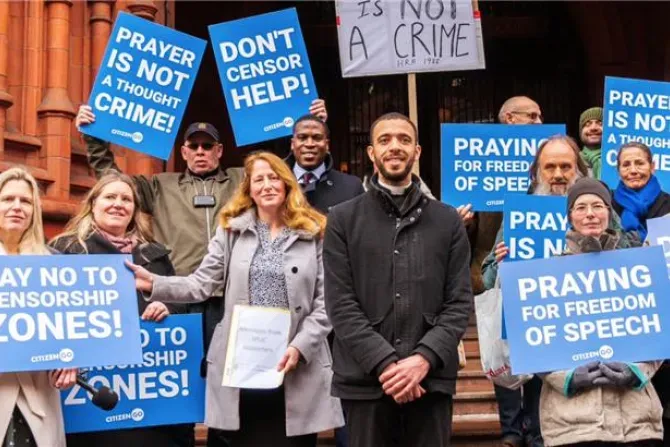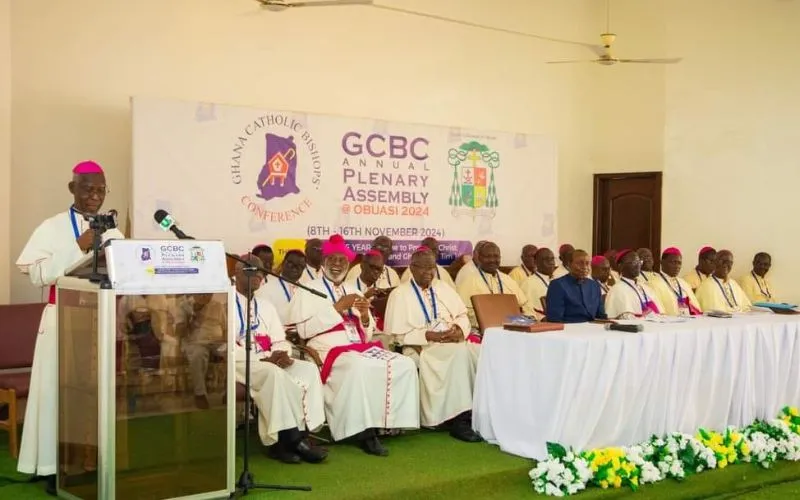Father Gough, were you surprised when police questioned you over holding a sign saying "Praying for Free Speech" inside the zone?
Well, I was standing silently and praying– so, yes, I was very much surprised. As a priest, I try to pray wherever I am; it is part of my life and my vocation. I made clear that I was there to pray for free speech – which is under severe pressure in our country. This can never be illegal. In line with our laws, I was confident that everything I did was lawful and in line with our common basic human rights. But just now, the court ruled “not quilty”. I am very much relieved that my name has been cleared and our right to freedom of thought confirmed.
What made you decide to do so on that day in the first place? (It appears the facility was already closed.)
Abortion is the greatest social justice issue of our time, over 10 million people have already been lawfully killed as a result of abortion in the UK. For me, I must be a voice for the voiceless. I also pray for this cause often. It is important as Catholic to pray in places of significance, such as churches and shrines. I wouldn’t bless a house unless I was there. Abortion is an issue of significance to me so it was important to peacefully pray near the site on the public street. Censorship zones are incredibly illiberal—they censor speech, thought, and prayer. This is why I felt the need to pray for free speech – especially in the place where it is most urgently needed.
While other people have faced charges over praying near abortion facilities, in your case notably the reason you were approached was over the call to pray for free speech. How does this freedom relate to the protection of unborn life, given circumstances?
We need to defend freedom of speech, freedom of assembly, freedom of thought – in short: fundamental freedoms – to be able to advocate for everyone’s right to life. A further charge laid against me related to a small bumper sticker on the back of my car which said “Unborn Lives Matter”. Voices that want to speak for the unborn are increasingly censored.
Bishop John Sherrington, spokesperson for Life Issues for the Bishops of England and Wales, has warned of a disproportionate impact on people of religious faith. Do you share this concern?
Some censorship zones explicitly prohibit the use of holy water, kneeling down, crossing oneself, and even the very act of praying. Therefore, yes, it’s absolutely true that this has a disproportionate impact on people of faith. This is a very dangerous trend to target and discriminate against religion and obviously violates the international right to religious freedom.
You have made it clear that abortion is a personal matter to you. Can you explain how this relates to your ministry with Rachel's Vineyard? — And how can people support you and your work?
I myself was conceived in the context of violence. Many people would think my mom should have aborted me, but she didn’t. She bravely stood for life and I want to live up to her witness. Now, here I am: A young man, who is just grateful for his family, his life, and the opportunity to serve as a priest.





